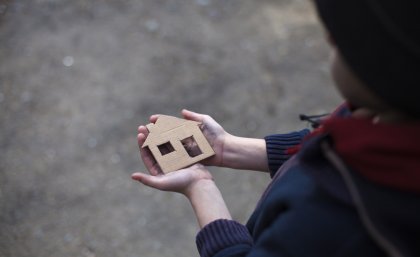 People experiencing homelessness who reject being defined ‘homeless’ not only reduce stigma associated with the label but are also more likely to increase their feeling of self-worth.
People experiencing homelessness who reject being defined ‘homeless’ not only reduce stigma associated with the label but are also more likely to increase their feeling of self-worth.
The burden of perceiving yourself as ‘homeless’ has been detailed in research conducted by The University of Queensland and The Salvation Army.
UQ School of Psychology researcher Professor Jolanda Jetten and her collaborators found most people who sought help from The Salvation Army for accommodation improved their situation quickly.
“At our first follow-up, within the first three months, 82 per cent of clients of The Salvation Army reported an improvement in general life, 61 per cent reported better mental health and 57 per cent were in stable or transitional housing,” Professor Jetten said.
“People who felt a sense of belonging at The Salvation Army had greater uptake of services and felt more supported.
“The extent providers and clients worked together to enhance a sense of belonging – for example through group and community activities - which was important in breaking the cycle of homelessness.
“Overall 74 per cent of people reported positive general experiences at The Salvation Army.”
Researcher and PhD student Zoe Walter discovered those who used homeless services but refused to perceive themselves as ‘homeless’ often fared better.
“While 55 per cent using homeless services provided by The Salvation Army categorised themselves as ‘homeless’, 31 per cent rejected that notion,” Ms Walter said.
“Meanwhile 14 per cent were ambivalent or unsure whether they would classify themselves as ‘homeless’.
“Those who rejected the label of ‘homeless’ reported higher well-being, were less likely to report feeling negative, and thought of themselves as more resilient.”
The Salvation Army’s Queensland Accommodation and Housing manager Chris Deighton said The Salvation Army was proud of its longstanding relationship with The University of Queensland.
“We have already incorporated the research findings into our service delivery,” Mr Deighton said.
“Our belief is that people can experience significant adversity in life but are not defined by those experiences.
“Not seeing someone as 'homeless' reduces the stigma associated with homelessness, increases their self-worth and has an obvious overflow to their outcomes in life.”
The findings are part of a larger report that researched both the experiences of clients of The Salvation Army and the coping strategies of The Salvation Army’s employees.
Dr Genevieve Dingle, Dr Cameron Parsell and Dr Catherine Philpot co-authored the report with Professor Jetten and Ms Walter, and the research has led to numerous publications led by members of the research team.
Media: Professor Jolanda Jetten, j.jetten@psy.uq.edu.au, +61 7 3365 4909, Twitter @jetten_j; Salvation Army, mediaofficer@aue.salvationarmy.org, +61 2 9466 3143.



